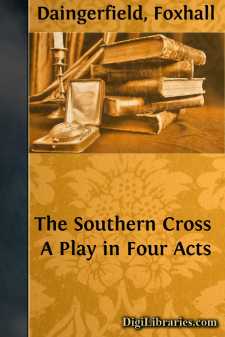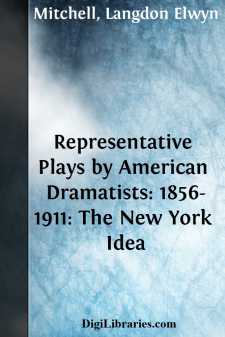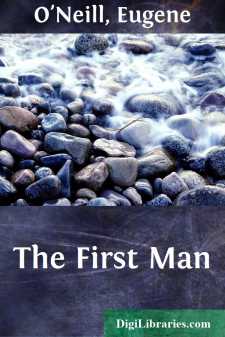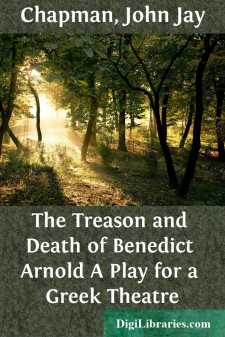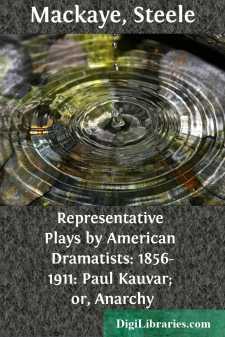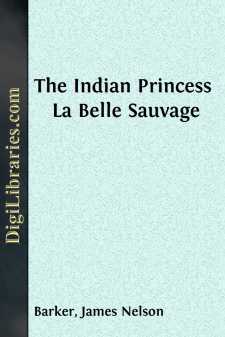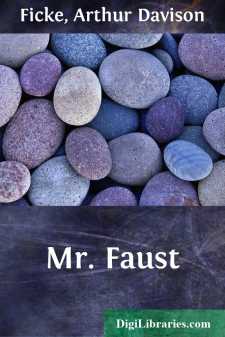Drama
American Books
Sort by:
ACT I. Outside the Stuart home, May, 1864. The large beautiful lawn of a typical Southern home. On the left and partly at the back stands the house, of colonial build, a wide porch running the entire length of the house, with three broad, low steps leading down to the garden. Many vines, mostly wisteria, in full bloom, cover the walls and some climb around the banisters. The porch has four white...
more...
by:
Gertrude Stein
One evening in the winter, some years ago, my brother came to my rooms in the city of Chicago bringing with him a book by Gertrude Stein. The book was called and, just at that time, there was a good deal of fuss and fun being made over it in American newspapers. I had already read a book of Miss Stein's called and had thought it contained some of the best writing ever done by an American. I was...
more...
LANGDON MITCHELL (Born Philadelphia, Pa., February 17, 1862) The performance of "The New York Idea" at the Lyric Theatre, New York, on November 19, 1906, was one of the rare, distinguished events in the American Theatre. It revealed the fact that at last an American playwright had written a drama comparable with the very best European models, scintillating with clear, cold brilliancy, whose...
more...
by:
Eugene O'Neill
ACT I SCENE—Living-room of CURTIS JAYSON'S house in Bridgetown, Conn. A large, comfortable room. On the left, an arm-chair, a big open fireplace, a writing desk with chair in far left corner. On this side there is also a door leading into CURTIS' study. In the rear, center, a double doorway opening on the hall and the entryway. Bookcases are built into the wall on both sides of this...
more...
by:
John Jay Chapman
TREASON AND DEATH OF BENEDICT ARNOLD ACT I The margin of the Hudson at West Point. Fort Putnam and the Highlands in the distance. A flag is fluttering on the fort. The orchestra represents the level of the river shore, upon which level the Chorus will enter. The characters of the drama appear on a bank or platform, slightly raised above the orchestra and Chorus. At the opening of the play Father Hudson...
more...
by:
Steele Mackaye
STEELE MACKAYE (1844-1894) When one realizes the sociological purpose behind Steele Mackaye's "Paul Kauvar; or, Anarchy," it is interesting to note how inefficient the old form of drama was to carry anything more than the formal romantic fervour. Compared with John Galsworthy's treatment in "Strife" and "Justice," it makes one glad that realism came and washed away all...
more...
SCENE— A shabby front room in a shotgun house. A door covered by dingy portieres upstage C. Small panel window in side Wall L. Plain centre table with chairs drawn up about it. Gaudy calendars on wall. Battered piano against wall R. Kerosene lamp with reflector against wall on either side of room. At rise of curtain NUNKIE is at piano playing…. Others at table with small stacks of chips before each...
more...
JAMES NELSON BARKER (1784-1858) In a letter written to William Dunlap, from Philadelphia, on June 10, 1832, James Nelson Barker very naïvely and very fully outlined his career, inasmuch as he had been informed by Manager Wood that Mr. Dunlap wished such an account for his "History of the American Stage." From this account, we learn that whatever dramatic ability Mr. Barker possessed came from...
more...
INTRODUCTION Through all the work of Arthur Davison Ficke runs a note of bigness that compels attention even when one feels that he is still groping both for form and thought. In "Mr. Faust" this note has assumed commanding proportions, while at the same time the uncertainty manifest in some of the earlier work has almost wholly disappeared. Intellectually as well as artistically, this play...
more...
by:
Upton Sinclair
THE NATUREWOMAN ACT I [Scene shows a luxuriously furnished drawing-room. Double doors, centre, opening to hall and stairway. Grand piano at right, fireplace next to it, with large easy-chair in front. Centre table; windows left, and chairs.] [At rise: ETHEL standing by table; a beautiful but rather frail girl of sixteen; opening a package containing photograph in frame.] ETHEL. Oceana! Oceana! [She...
more...


